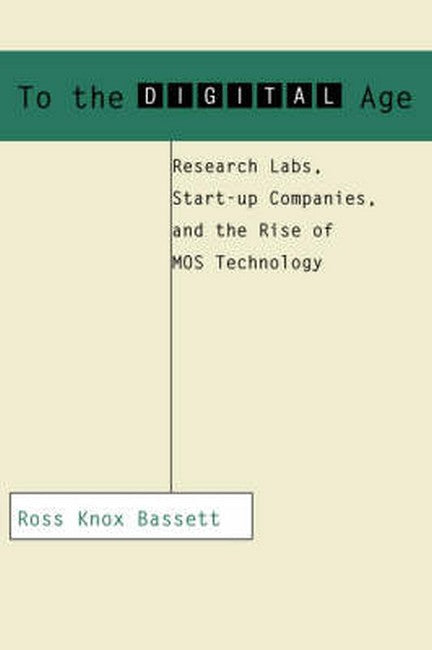The metal-oxide-semiconductor (MOS) transistor is the fundamental element of digital electronics. The tens of millions of transistors in a typical homein personal computers, automobiles, appliances, and toysare almost all derive from MOS transistors. To the Digital Age examines for the first time the history of this remarkable device, which overthrew the previously dominant bipolar transistor and made digital electronics ubiquitous. Combining technological with corporate history, To the Digital Age examines the breakthroughs of individual innovators as well as the research and development power (and problems) of large companies such as IBM, Intel, and Fairchild. Bassett discusses how the MOS transistor was invented but spurned at Bell Labs, and then how, in the early 1960s, spurred on by the possibilities of integrated circuits, RCA, Fairchild, and IBM all launched substantial MOS R & D programs. The development of the MOS transistor involved an industry-wide effort, and Bassett emphasizes how communication among researchers from different firms played a critical role in advancing the new technology. Bassett sheds substantial new light on the development of the integrated circuit, Moore's Law, the success of Silicon Valley start-ups as compared to vertically integrated East Coast firms, the development of the microprocessor, and IBM's multi-billion-dollar losses in the early 1990s. To the Digital Age offers a captivating account of the intricate R & D process behind a technological device that transformed modern society.Reviews''A fascinating account of a critical period in the evolution of microelectronics. The author clearly documents the cost of not invented here attitudes, and the importance of close coupling between R & D, manufacturing, and marketing in fast-changing fields.''D. A. Hodges, University of California at Berkeley''I thought I knew all of the players and history until I read To the Digital Age. It's a fascinating and illuminating book.''T.J. Rodgers, CEO, Cypress Semiconductor''To the Digital Age is an elegant narrative about IBM's, Intel's, and Fairchild's involvement with metal oxide semiconductor development. The story is tightly told using contemporary literature and the results of interviews done by the author.''Arthur L. Norberg, director of the Charles Babbage Institute, University of Minnesota''Ross Bassett gives the reader true insight into how complex and difficult it is to create a major technological change. He does justice to the many false starts and hesitant beginnings, and to the small army of scientists and engineers, scattered throughout many organizations,who created this revolution.''John Armstrong, National Academy of Engineering and former VP and Director of Research at IBM''An excellent book . . . To the Digital Age presents the definitive history of how the transistor was transformed from an analog into a truly digital device.''IEEE Spectrum''Bassett's book is an exciting, fast-moving, and entertaining look at the early days of the MOS device development, bringing to light the remarkable interplay of people and companies that made it a dominant electronic technology.''SSCS Quarterly''Bassett's account of the development of MOS has important implications for understanding the relationships among science, commerce, new product development, and research and development.''Enterprise and Society

